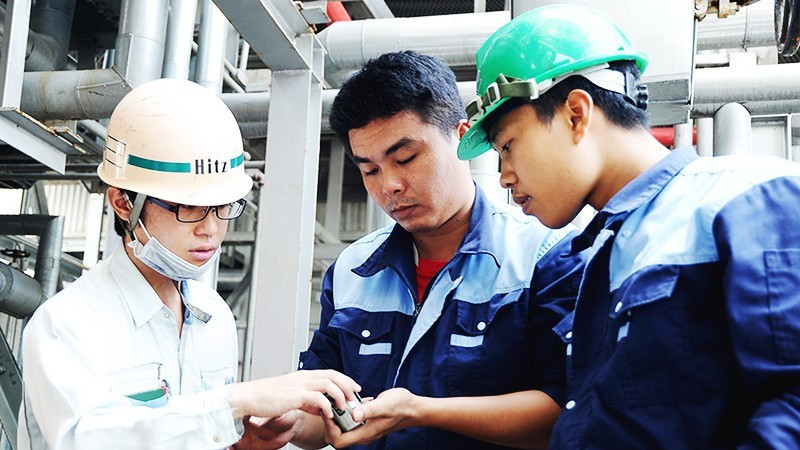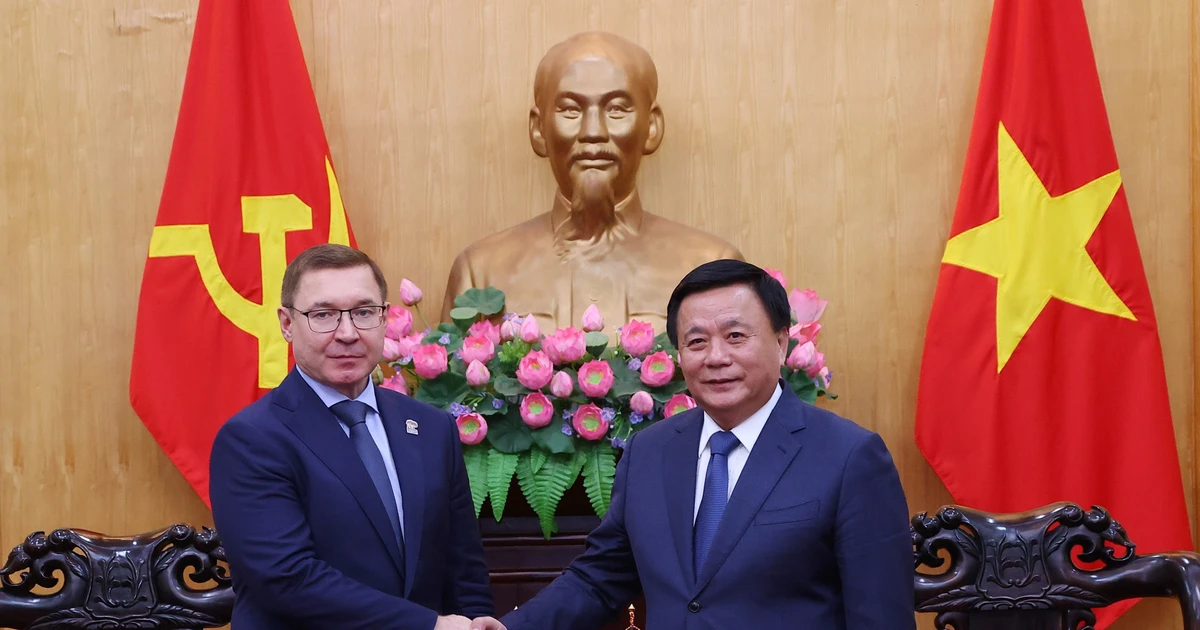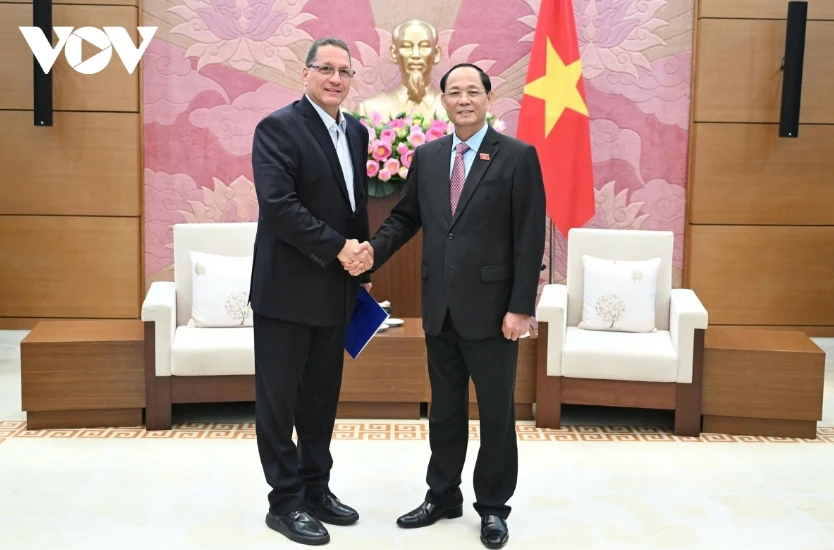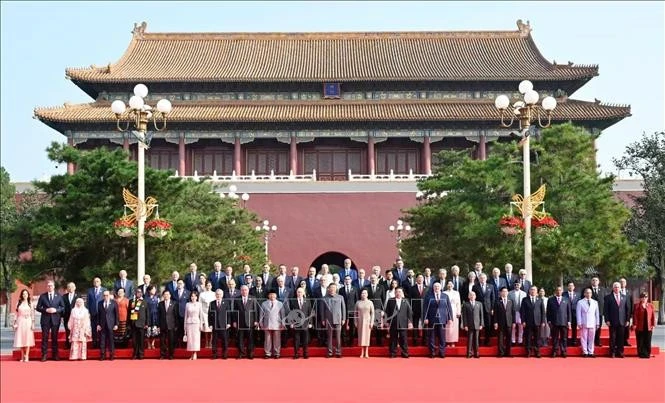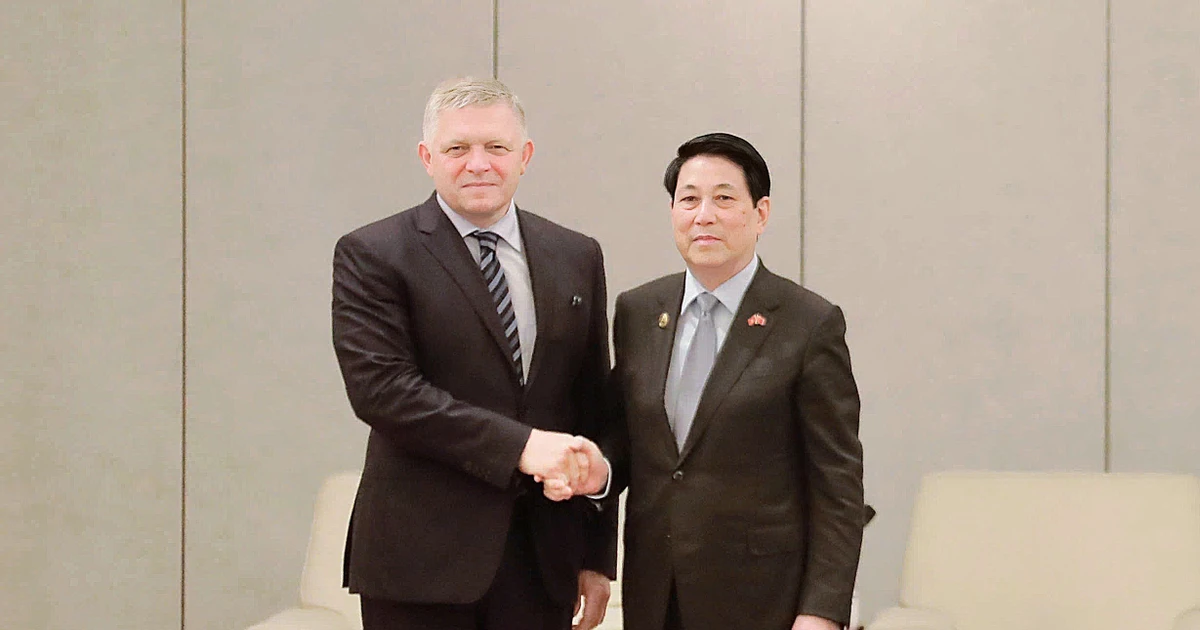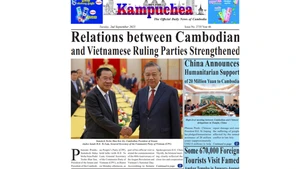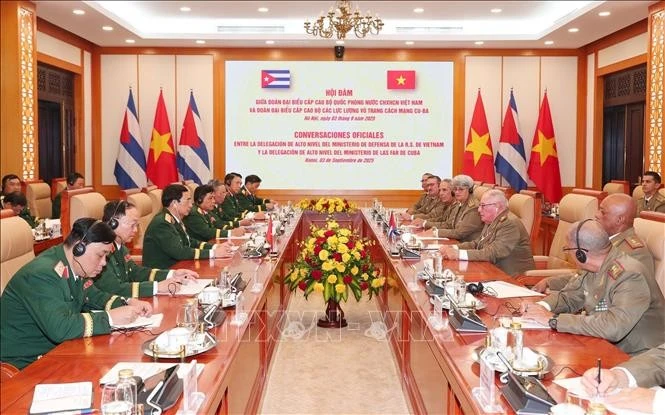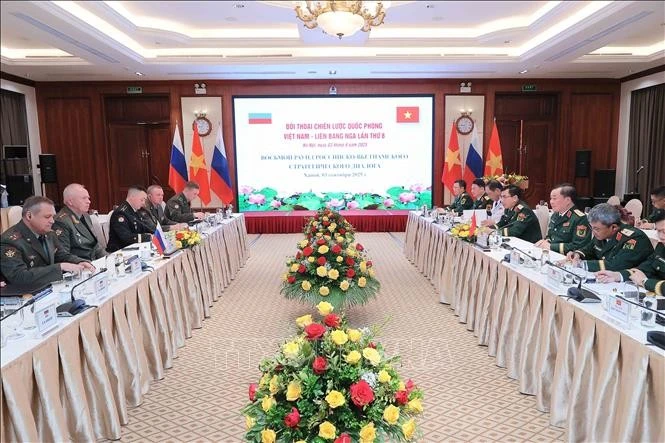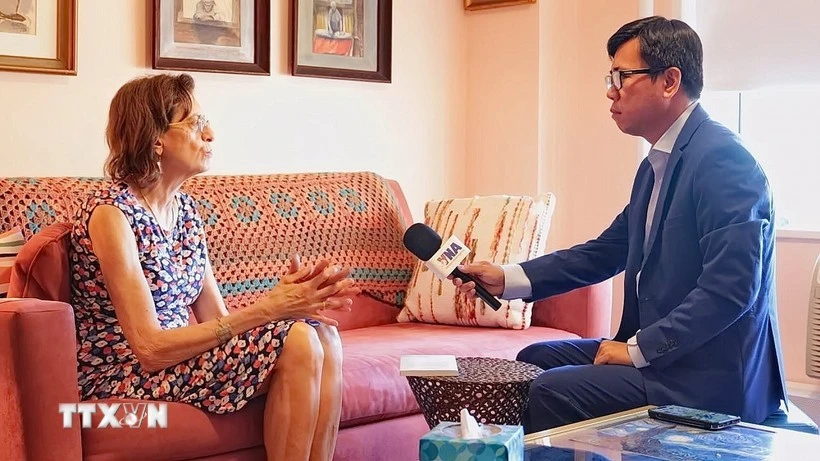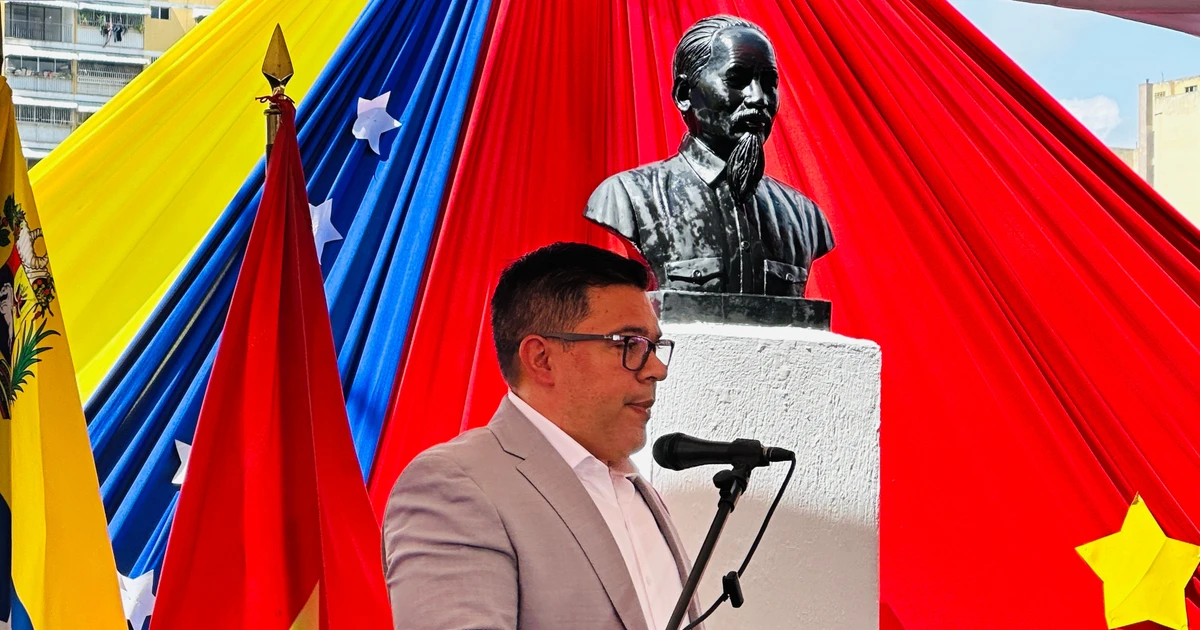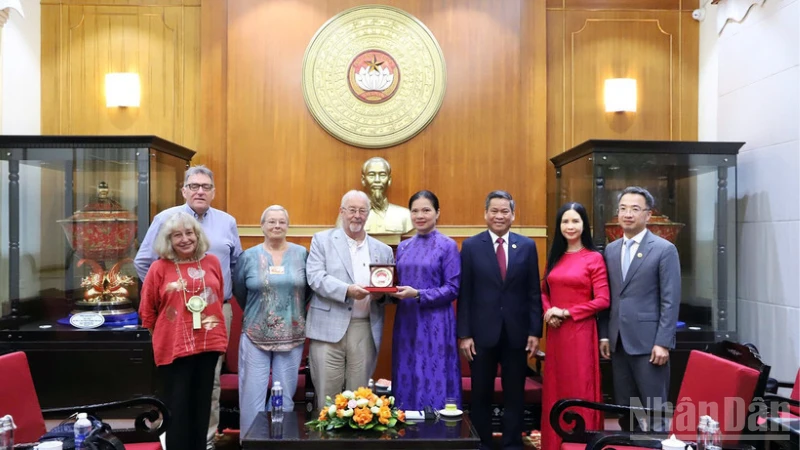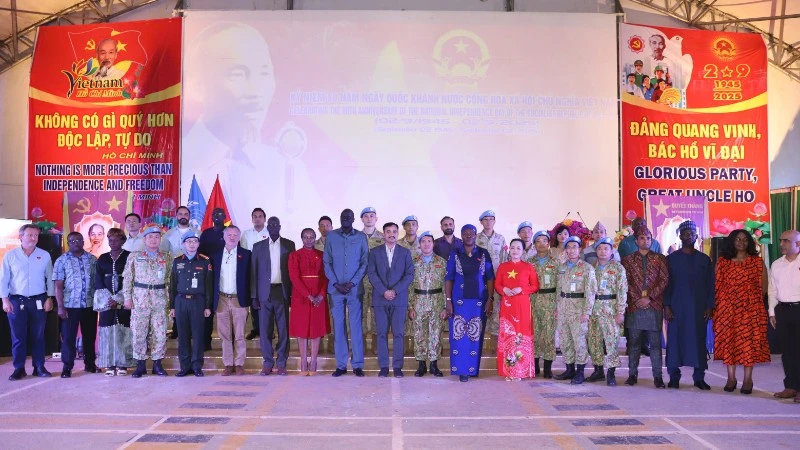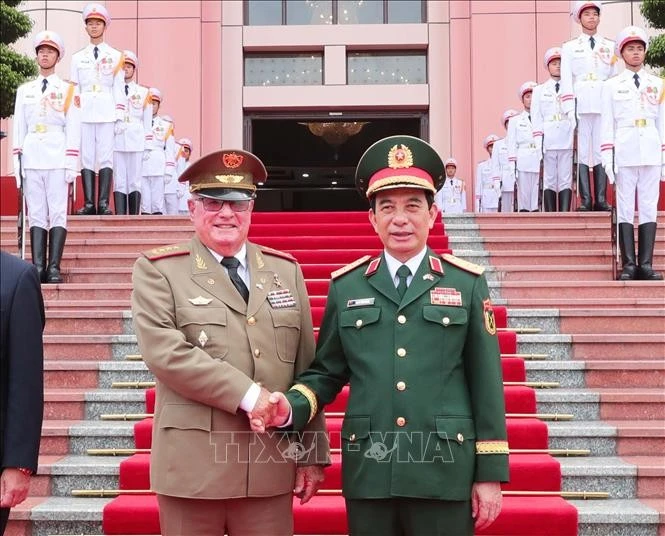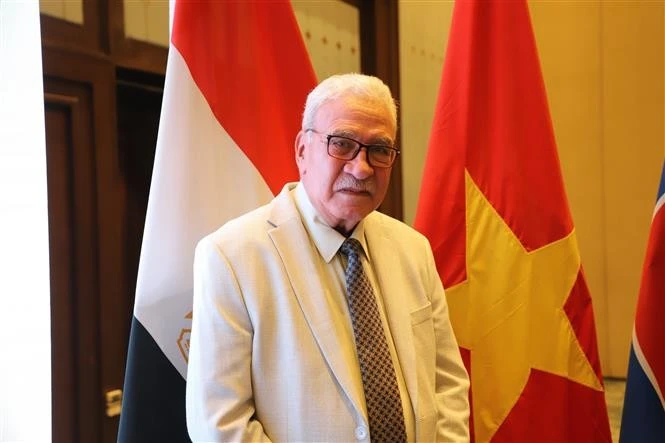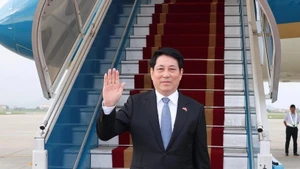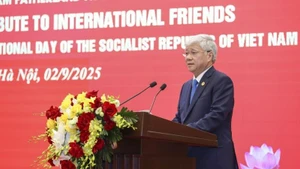In 1992, after Japan resumed Official Development Assistance (ODA) to Viet Nam, one of the first and most notable cooperation projects by the Japan International Cooperation Agency (JICA) in the country was the Ishikawa Project – a joint research initiative between the two nations that ran from 1995 to 2021. The project supported the formulation of the Sixth Five-Year Development Plan (1996–2000), helping to shape policies during the early stage of Viet Nam’s economic transition under the Doi Moi (Renewal) process.
In addition, JICA launched a long-term programme of legal and judicial cooperation initiated by the late Professor Akio Morishima. These projects laid the foundation for Viet Nam’s international integration and legal system – two of the four key pillars in the nation’s reform strategy aimed at achieving high-income status by 2045.
An impressive and distinctive journey
A crucial hallmark, highlighted by Chief Representative of the JICA Office in Viet Nam Kobayashi Yosuke, is infrastructure development. Through JICA, Japan has supported the country in building numerous strategic projects such as highways, bridges, seaports, airports, power plants, and wastewater treatment facilities.
Among the most symbolic projects in recent years has been Metro Line 1 in Ho Chi Minh City, Viet Nam’s first underground urban railway. This serves as an emblem of cooperation, showcasing the application of Japanese technology and expertise. Alongside this, numerous projects in education, healthcare and human resource development have contributed to advancing the shared development goals of the two governments.
According to Kobayashi, alongside effectively mobilising international resources, Viet Nam has made strong efforts to harness its domestic strengths. As a result, the country’s socio-economic transformation over recent years has been remarkable. Since the early 2000s, Viet Nam’s per capita income has quadrupled, rising from around 1,000 USD in 2008 to more than 4,100 USD in 2023. Progress in education and healthcare has also been evident: the share of the population with a university degree rose from 20% to 45%, while health insurance coverage expanded from 57% to 93%.
These outcomes reflect Viet Nam’s strong commitment to comprehensive development, strategic reform and international integration. A dynamic private sector, substantial infrastructure investment and expanding global partnerships have propelled the country into the ranks of the region’s vibrant middle-income economies.
Alongside JICA, many other international organisations have also actively supported Viet Nam’s development journey. For more than 30 years (since 1994), the French Development Agency (AFD) has committed around 3.2 billion EUR (3.73 billion USD) in total investment to Viet Nam.
According to Deputy Director of AFD Viet Nam Hugo Pierrel, the agency’s cooperation in the country has been marked by three milestones. From 1994, AFD focused on agriculture, implementing projects in crop development such as rice, coffee and rubber, while also supporting irrigation and water management to boost agricultural exports.
In the 2000s, AFD shifted its emphasis towards economic infrastructure at the request of the Vietnamese Government, notably in energy, seaports and transport, including the rehabilitation of the Yen Vien–Lao Cai railway and co-financing Ha Noi Metro Line 3 (Nhon–Ha Noi Station). By 2015, following the Paris Agreement on climate change, AFD focused heavily on climate response programmes, including flood management, coastal and riverbank erosion prevention, and strengthening urban resilience.
Currently, AFD is focusing its funding and activities on energy and transport, supporting Viet Nam’s energy transition in partnership with the Viet Nam Electricity Corporation (EVN).
Pierrel described Viet Nam’s development path as “unique”, calling it a rare story of strong advancement driven by proactive and flexible choices, widely supported by the international community. From a least developed country, the nation rose to middle-income status in 2017 and in the same year attained upper middle income. The most remarkable achievement has been poverty reduction: from 45% of the population in 1990 to below 1% today.
“This is a breakthrough, showing that the Vietnamese Government has remained steadfast in its goals, acted decisively and directed resources to the right places to achieve deep and lasting economic and social change,” the AFD representative observed.
Chief Representative of the JICA Office in Viet Nam Kobayashi Yosuke added: “We are currently supporting preparations for Ha Noi Metro Line 2 (Nam Thang Long–Tran Hung Dao), with a view to expanding two metro lines linking Ho Chi Minh City with Binh Duong and Nam Thang Long (Ha Noi) with Noi Bai Airport.”
Continuing to strengthen cooperation effectiveness
Sharing their priorities for future support and cooperation with Viet Nam, many international organisation representatives reaffirmed their commitment to supporting the country, while stressing the importance of addressing challenges along the development path.
According to Kobayashi, JICA’s current priorities align closely with Viet Nam’s four reform pillars: science and technology, international integration, private sector development and legal institution-building, with the aim of achieving high-income status by 2045. However, he also candidly acknowledged that the road ahead will not be easy, as project preparation and implementation still face many challenges.
“To improve the effective use of Japanese ODA, the two governments are working to resolve a number of challenges, including preventing and addressing disputes during and after the implementation of major infrastructure projects. There are also administrative bottlenecks causing delays in project start-up and execution,” he said.
The JICA representative further emphasised that, in the next phase of development, Viet Nam may face many difficulties that countries like Japan once experienced. Thus, learning from and drawing on international experiences will be crucial.
From his perspective, Pierrel noted that based on project implementation in Viet Nam, the Government needs to continue improving issues related to land clearance and simplifying project approval procedures. These remain major bottlenecks for many infrastructure projects.
In the coming period, AFD projects will focus on climate change mitigation and adaptation, ensuring these programmes align with the green growth roadmap. Particularly between 2021–2025 and 2025–2030, AFD’s operational plans in Viet Nam will form part of the broader framework of bilateral cooperation activities between France and Viet Nam.
AFD has reaffirmed its commitment to “nurturing” France–Viet Nam cooperation, further deepening relations between the two countries and contributing to the growth of their bilateral strategic partnership established in 2024.
Taken as a whole, Viet Nam is receiving strong international partnership in terms of resources, expertise and strategic vision for the next stage of development. While numerous challenges remain, the firm commitments from partners such as Japan and France not only inspire confidence but also open opportunities for Viet Nam to accelerate reform, pursue sustainable growth and move closer to its goal of becoming a high-income country by 2045.
